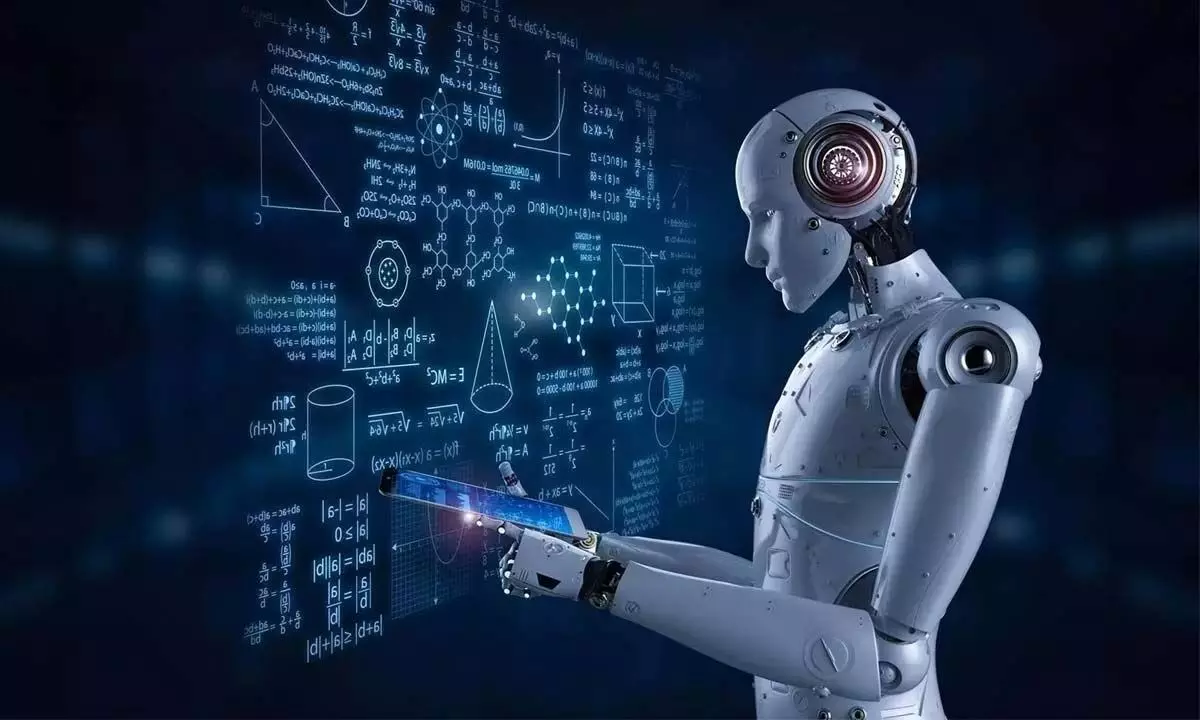The future for youth is in AI

Today, it seems like all roads lead to AI. If technology pioneers and industry leaders are to be believed, artificial intelligence won’t just define the future—it is the future.
Today, it seems like all roads lead to AI. If technology pioneers and industry leaders are to be believed, artificial intelligence won’t just define the future—it is the future. And as the world grapples with how to use the technology, the marketplace is shifting. Businesses are turning to AI to replace older practices and increase efficiency. The way enterprises engage human labour is expected to change as AI sweeps into offices and boosts productivity. Soon, it won’t be about managing tasks but overseeing the systems that execute them. With the dawn of a new technological era, the time is perfect for young professionals – and freshers – to immerse themselves in the world of artificial intelligence and machine learning, where training in the latest trends and concepts will be a career-defining move and maybe the best decision they’ve ever made.
Freshers today face a world of change. As the economy fluctuates and the demand for many kinds of jobs tumbles, young professionals with no work experience are limited in their options. With tech organisations freezing hiring and slowing their intake, graduates are not exactly spoilt for choice. But there is a silver lining—niche areas like AI are blooming, and there is a demand for skilled personnel in these areas. While traditional technology domains like IT and legacy software development slowly depreciate and the focus shifts to digital technologies (AI/ML, Cloud Computing, IoT, Blockchain, and AR/VR), new job profiles are bound to rise. These roles will be highly specialised and involve knowing new-age skills and an innate flair for critical thinking. While the latter can’t be taught, the former is something that young minds can learn and pick up.
Apersistent problem in India is a lack of qualified digital tech talent. But this also presents several exciting opportunities for those willing to partake in the digital revolution. The demand-supply gap for the country in AI & Big Data Analytics in 2021 was 50%, with nearly half a million job postings in the sector. And that number continues to grow. The World Economic Forum’s The Future of Jobs Report 2023 expects 69 million new jobs to replace over 80 million others.
And among the fastest-growing roles are in AI, as the employment of data scientists and AI specialists could grow in leaps and bounds in the next few years. Meanwhile, the domain’s longevity can be best exemplified by the fact that it is expected to be a base tech skill by 2030. Decades from now, progress in almost all domains will be based on AI technology. Human traits like communication are poised to be automatable, with several organisations mooting introducing AI to their workflows and training their employees to use AI and Big Data.
The road ahead for young India is clear: while traditional roles might be hard to come by today due to economic circumstances and global events, opportunity abounds elsewhere. The jobs are available; long-term careers are available; and high-paying, future-proof roles exist. Organisations are actively seeking young, curious professionals with the right mix of creative and analytical flair. Given the circumstances, freshers should switch lanes and direct their attention towards upskilling in AI.
Automation is set to rise in virtually every field, from aiding screenwriters with scripts to simplifying marketing. Correspondingly, the business utility of AI tools will grow, allowing employees more room to focus on critical tasks that require human judgement. Increasing adoption will engender the need for a greater workforce in the developmental end to create AI systems and maintain them—future jobs will thus include a proliferation of ML engineers, AI data analysts, DevOps engineers, and solutions architects. And while these jobs might eventually evolve and grow into other forms, they’re a solid base for young talent to develop over the long term.
Loading up on these skills ensures not only a way into the job market but assures stability and lasting desirability in a highly competitive environment.
AI and data are game changers, in a way unlike anything we’ve seen so far. Their impact on the tech landscape is immense. Soon, our notions of how we work and solve problems will be challenged. The renaissance is happening at this very moment—hopefuls in the tech industry should be a part of it or risk impeding their careers by possessing skills past their sell-by date. The ask is simple: follow the breadcrumbs and stay alive in the industry. As India and the rest of the world prepare for a digital makeover (or even a takeover), AI-based skills are definitely a certified route to a prolific professional journey. It’s as safe a bet as any for the country’s youth—arguably the only one.
(The author is Academic Director, Great Learning)








